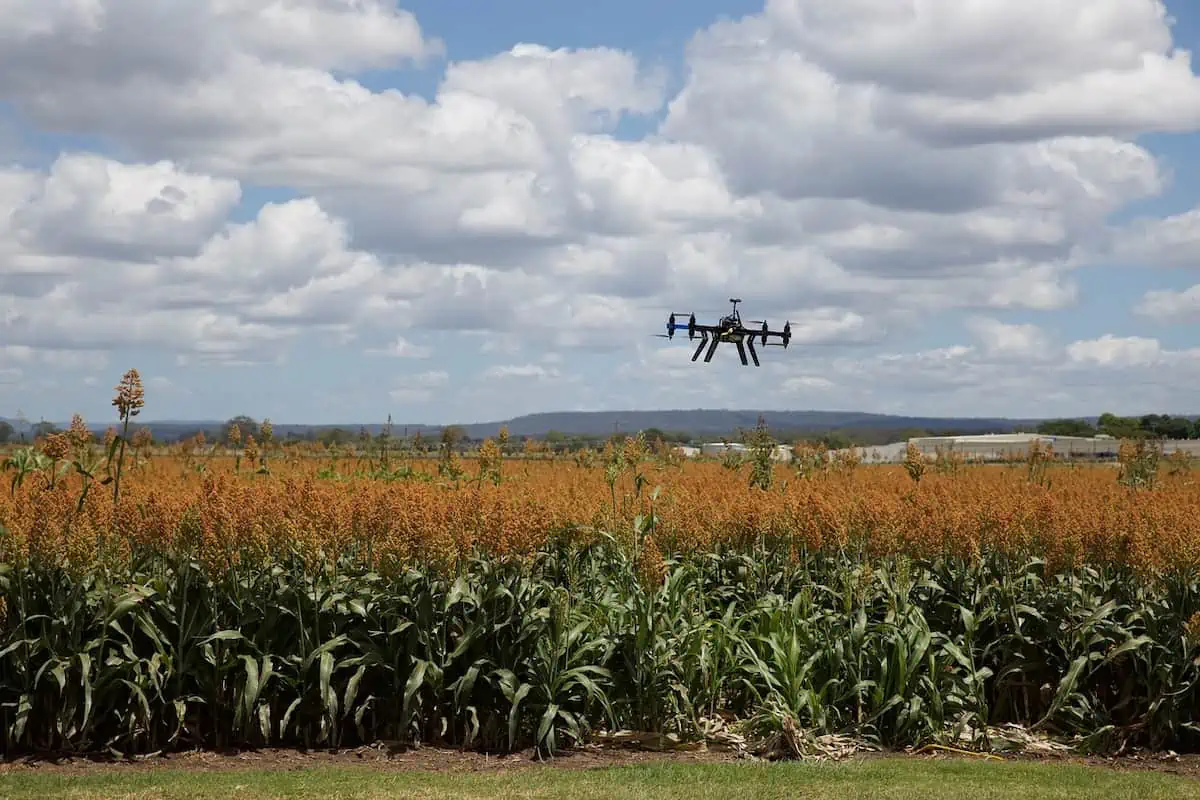Blockchain technology is usually directly linked to financial sectors, but it has a vast range of applications beyond cryptocurrencies. This technology can be used to transform several sectors, such as the health industry, agricultural industry, real estate, banking, and law.
With the advancement of digital media and the growing awareness amongst the youth, people want to know exactly where their food comes from. The rise in food adulteration may be one of the primary reasons why the desire to eat healthy, unprocessed, and organic food has increased recently.
The surge in such demands has resulted in agribusinesses searching for agricultural supply chain management options to improve food quality, safety, and traceability of the entire farming supply chain.
The Issue with the Current Agricultural Supply Chain
The main issue of today’s supply chain management in agriculture is that they often use a centralized system. This single authority manages the supply chain processes and product traceability data. The supply chain members rely on the data offered from this single source and also transfer and share the information there.
The issue with such a centralized system is that it is often non-transparent and monopolistic and offers limited scalability. This gives rise to data falsification, corruption, and fraud. Also, the major issue with such a centralized system is that there is a single point of failure, which is the weak link. This can pose a serious threat to security and reliability.
The Need for Blockchain Technology for Supply Chain Management
The usage of blockchain technology in agriculture can significantly support its supply chain traceability. When using blockchain technology, the data is stored within a distributed ledger that guarantees its authenticity and immutability. Blockchain also offers decentralization that reduces the risk of corruption and data loss.
So this means whenever there is a data change attempt on the blockchain, all the participants in the network would immediately be aware of the tampering upon inspection. Unlike the traditional supply chain, where you trust a single entity, blockchain eliminates the need to depend on a single entity by the supply chain members. This solves the significant security and traceability issue of supply chains in general.
Let us explain this with a typical example of the supply chain of crops. The supply chain starts with registering products from the supplier of seeds or other food input. This is entered into a digital ledger. Information such as food quality, pesticides used, and transformation needs to be filled out.
After the data has been submitted, the DLT network verifies the record of this data throughout the supply chain. Also, other information is updated on the DLT, such as transit information, import-export, and expiration date.
Product QR codes help with the traceability of the origin of the food. The demand for such QR codes has recently increased by consumers who can scan the code on the packaging, know precisely where the product was produced, and get detailed information about its life cycle.
Platforms like Agoverse have launched a blockchain-based metaverse platform offering a multi-vendor agricultural sector marketplace. They have developed a unique blockchain-based metaverse that lets advertisers create immersive ads for the industry.
As stated by CTO Preska Thomas, “Agoverse’s Web3 blockchain technology ensures that our advertising metaverse is secure, transparent, and tamper-proof, providing a new level of trust for advertisers and their target audience.”
The Agoverse.com marketplace can be used by vendors to create their own online stores to showcase their products to global consumers directly. According to Treasurer Christine Van Allen, “Agoverse’s innovative platform is helping to drive growth and prosperity in the agricultural industry.”
The platform offers several features that can help vendors manage their stores efficiently. It offers secure payments, order tracking, and shipping options like Amazon but for agricultural sector-related products. President Bryan Candelaria correctly says, “Our goal is to provide a one-stop-shop for the agricultural industry.”
Blockchain technology implemented to streamline their supply chain helps improve the product’s traceability. Agoverse offers farmers tools to track their products from farm to table. Consumers are offered greater transparency and tractability in the supply chain.
Kevin D. Finn, the President of Business Operations in Indiana. is optimistic to say, “Agoverse is committed to driving growth and innovation in the agricultural industry, creating new opportunities for farmers and businesses.” –
www.agoverse.com provides a secure and transparent way for farmers, manufacturers, and retailers to connect and do business. As stated by CEO Matthew Candelaria, “Agoverse is more than just a marketplace. We are creating a platform that empowers farmers, manufacturers, and retailers to connect and do business securely and transparently.”
How Blockchain for Supply Chain can Transform the Agricultural Industry
Blockchain for supply chain or blockchain farming and distributed ledger technology (DLT) can be used to increase farming efficiency, data-driven decision-making, and transparency in the supply chains. Further, it can help to power the farmers along with helping consumers build trust.
- Blockchain technology reduces financial risks by promoting inclusive trade.
- It eliminates the need for third-party intermediaries to streamline the process.
- Simplifies agricultural supply chain.
- The technology can help track the product from the farm to the store shelf.
- Data-driven decision-making aid in deciding customer demands that can help improve sales.
The Bottom Line
The agricultural supply chain is one of the most complex ones out there. Making use of blockchain technology to improve the supply chain is a great way to reduce the risks of counterfeits and improve efficiency. Blockchain-based supply chain management offers transparency, removes single entity-related risks and dependency, and eliminates intermediate links in the value chain.
This builds trust among the market players, and with the help of smart contracts and distributed ledgers, more opportunities are created for the producers and meet the demands of the consumers.

